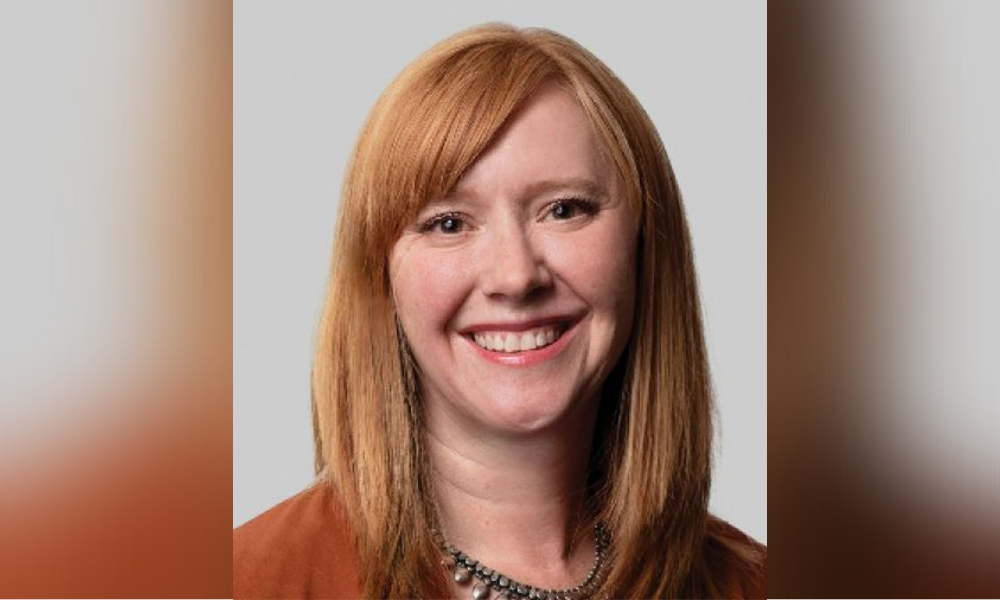'I'm really excited for how we co-create a workplace that is more a place you want to go than a place you have to go'

“I’m a firm believer that the workplace still has value.”
So says Kelly Blackett, chief people and culture officer at CWB Financial Group, in referring to debates about returning to the office as the pandemic subsides.
To that end, the financial institution is preparing to move into new space in downtown Edmonton in a couple of years.
“We think that the workplace is a really important part of how people see and experience culture — it just doesn't have to be so timebound,” she says.
These days, an employer can’t have a winning talent strategy without having a winning flexibility strategy, says Blackett. That means letting people work around what’s important to them.
“We've actually built our model around connections that count. So it's not about the number of days per week, but it's about ‘Here's the types of things that we think there's a lot of mutual benefit when you're together for it, and we're better together when we do these things.’”
It’s all about having a high-trust workplace, and not managing to the 10 per cent of people who might not behave the way you want, she says.
“I always say to my team ‘Let's not manage our workplace to that, let's not manage protocols to that; let's manage it to the vast majority of people that we think are here for the right reasons and are going to show up and be productive and contributing every day.’”
13-year career at GE
Blackett speaks from experience. She has worked in HR for over 25 years, realizing early in her career the power of people.
“There is no other way that a business can really deliver its strategy and its customer experience — people are the differentiator of that. I think it's an extraordinary opportunity to be at the seat at the table and helping to move the business forward.”
Read more: HR leader profile: Deb Paulsen of MEC
Personally, there’s also great pleasure in getting the right person for the job, and seeing them succeed through coaching and discovery, she says.
“[It’s about] creating the types of workplace experiences where people feel really valued... it's really rewarding.”
Blackett’s HR career began as an HR manager at an Edmonton site of GE Money back in 1997 and from there she took on several roles in her 13 years with the company, including HR leader for GE Money Canada in 2005, and organization, learning and talent development leader in 2012.
She joined CWB Financial Group in 2013 as senior vice president of human resources.
“GE was a machine… it’s an exceptional organization to work for, from a talent development and leadership standpoint,” she says, but there’s something “incredibly rewarding” about joining a much smaller employer such as CWB.
“You really feel like you can wrap your arms around the organization and the talents that are here and say, ‘I can be more nimble, I can take everything I’ve learned at this larger organization and be perhaps more embedded in the communities that we operate in and really get to know talent not just on paper but spending time [with them], coaching and nurturing them.
“There’s still this landscape of possibility in front of you… I like to be part of building what comes next.”
Building a post-pandemic strategy
Right now, that means building a post-pandemic strategy and prioritizing employees, says Blackett.
How? Having an always-on listening strategy, for one.
“This idea of an engagement survey a once a year, I think, is terribly insufficient in this day and age…. one of the things that we've built is a really robust process for how we can always be engaging people and involving them in the decisions that we make as we move forward.”
That involves empowering leaders and teams to think about the flexible framework that works for their teams.
“Isn't that cool? We get this opportunity to co-create that future with our employees,” she says.
Read more: HR leader profile: Carolyn Meacher of Dentsu
But it’s also about having a “rigorous feedback loop” which leads to a rigorous action planning process, says Blackett, “otherwise people lose faith, if you’re not acting on their improvement suggestions.”
As for full-time presence at the office, “I don’t think that world exists anymore… my sense is that the decision of making the democratization of the workplace is a more permanent feature,” she says.
Technology has also enabled employers and HR to make better decisions, to be more predictive in workforce planning, and to build inclusion.
“I don’t think the workplace has always worked for people at every single life stage that they’re at,” says Blackett, a working mother.
“So what I'm really excited by is this opportunity for what comes next and how we co-create a workplace that I think can be more about a place you want to go than a place you have to go all the time, and it can hopefully work for people at a greater variety of life stages, and really help them not just achieve their work goals, but also their life goals.”




